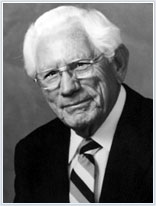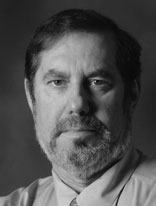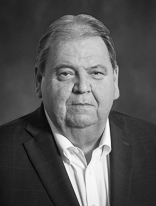President Emeriti
Today's USW leaders carry on the visionary leadership of predecessors who guided the union to its present position as a strong and democratic union.
 1942 - 1952
1942 - 1952
Philip Murray, a coal miner at age 14, was named by United Mine Workers President John L. Lewis to head an organizing drive in steel as chairman of the Steel Workers Organizing Committee (SWOC). In 1942, the founding convention of the United Steelworkers of America named Murray the union's first president.
 1952- 1965
1952- 1965
David J. McDonald, becoming president upon Murray's death in 1952, helped bring about the 1955 merger of the AFL and CIO and also led the union through its historic 1I6-day strike.
 1965 - 1977
1965 - 1977
I.W. Abel was instrumental in passage of landmark legislation such as OSHA and ERISA, the pension reform act, and in reaching an Experimental Negotiating Agreement with major steel producers that curtailed nationwide strikes in return for guaranteed wage increases and cost-of-living adjustments. He also helped to guide the merger of the International Union of Mine and Smelter Workers with the USWA.
 1977 - 1983
1977 - 1983
Lloyd McBride confronted massive changes impacting the steel industry and launched the fight against imports that were destroying the jobs of thousands of Steelworkers.
 1983 - 1993
1983 - 1993
Lynn R. Williams, becoming President upon McBride's death, led the USWA through the most difficult period in the history of the union and the American labor movement. His innovative leadership in bargaining resulted in creation of the Institute for Career Development, Voluntary Employee Benefit Associations (VEBAs), and financing through contracts for the Stand Up For Steel coalition, as well as securing corporate board positions for Steelworkers' representatives.
 1993 - 2001
1993 - 2001
George Becker became President upon Lynn Williams' retirement, and launched the struggle to save the North American steel industry and combat the failed trade policies that had triggered the crisis in the industry. He expanded the union's organizing effort and created Rapid Response, the most effective member-lobbying program in the American labor movement. Under his leadership, the union concluded mergers with the United Rubber Workers and the Aluminum Brick and Glass workers.
 1999 - 2005 (PACE)
1999 - 2005 (PACE)
Boyd Young became President Emeritus of the new USW after the historic merger of the United Steelworkers with the Paper, Allied-Industrial, Chemical and Energy Workers International Union (PACE). He was President of PACE prior to the merger and before that International President of the United Paperworkers International Union (UPIU). Earlier in his career, he was President of UPIU Local 801 at an east Texas paper mill, Eastex Inc.; a UPIU international representative covering Texas, Louisiana and Mississippi; and director of UPIU Region 6.
 2001 - 2019
2001 - 2019
Leo. W. Gerard became president upon George Becker’s retirement. During his time as USW president, he led the union on a course of unprecedented activism, demanding – and winning – government action to halt a flood of illegal imports that destroyed North American manufacturing jobs and negotiating precedent-setting labor agreements. A co-founder of the labor-environmental partnership the BlueGreen Alliance, he also fought to revive the economy by rebuilding the nation’s infrastructure and paving the way for a cleaner, more prosperous future for American and Canadian workers. Under his leadership, the union grew through mergers including those with the Paper, Allied Industrial, Chemical and Energy Workers International Union (PACE), the Telecommunications Workers Union (TWU), and the Glass, Molders, Pottery, Plastics and Allied Workers International Union (GMP).
 2019-2023
2019-2023
Thomas M. Conway was elected by the International Executive Board to succeed retiring International President Leo W. Gerard, effective July 15, 2019, and was reelected to a full term in 2021. Conway was known for his quick wit, formidable bargaining skills and unwavering devotion to workers and their families. He relished going toe to toe with top leaders of some of the biggest corporations where USW members work, and over the course of his career, he became one of the union’s most accomplished contract negotiators in steel, aluminum, oil and other major industries, often directing bargaining during crises. As president, he also spearheaded innovative initiatives to organize more workers into the labor movement, extending the benefits of union representation to workers in a variety of fields from manufacturing to higher education. Under his leadership, USW members gained some of the movement’s most significant organizing victories. During his time in office, Conway relentlessly advocated for fair trade, demanding that the government enforce trade laws to prevent importation of illegally subsidized and dumped products that damage domestic industries and destroy good-paying jobs. At the same time, he worked not just to save jobs but to create them, finding new ways to engage both companies and elected officials to expand manufacturing, secure domestic supply chains and invest in healthy, flourishing communities.
